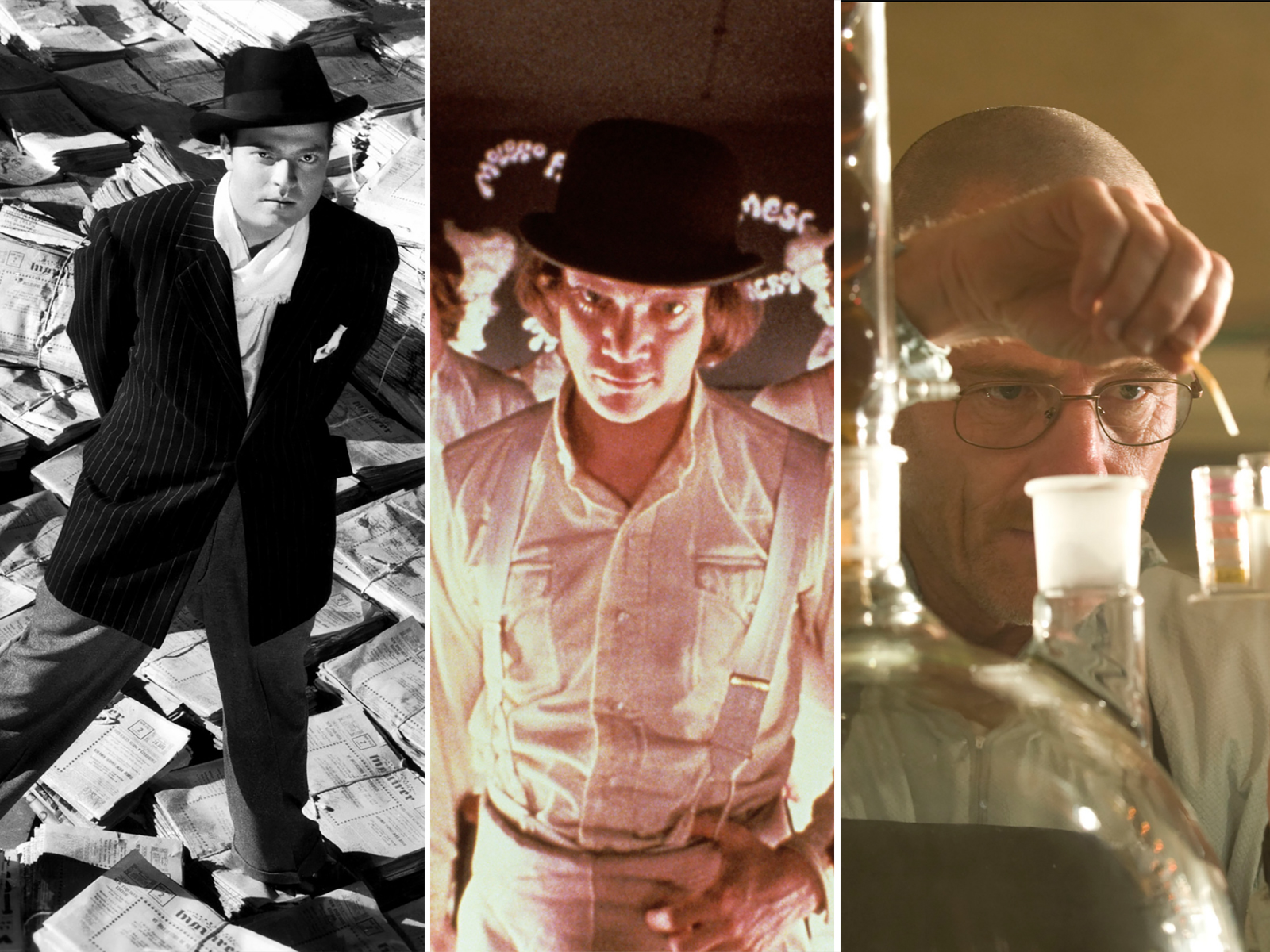
- Industry
Hollywood’s Latest Obsession – Fraudsters, Scammers, and Con Artists
Cinematic anti-heroes have long been an entertainment staple. Think classic characters like Orson Welles’ Charles Foster Kane in Citizen Kane (1941), Malcolm McDowell’s Alex DeLarge, a Golden Globe Nominee for Best Picture-Drama, A Clockwork Orange (1971), and, more recently, the Golden Globe Winning TV Drama Breaking Bad’s protagonist Walter White (played by Bryan Cranston), a mild-mannered, middle school teacher pivoted to the perilous world of big-time drug dealing. Audiences watched with a mixture of horror, fascination and, let’s face it, varying degrees of admiration.
Over time, though, the former delineation between good ‘guy’ and baddie, once crystal clear in the days of John Wayne and the wild wild west, has morphed into the gray. Witness Golden Globe Nominee Jodie Comer’s Villanelle in Killing Eve, a murderous assassin we find ourselves almost rooting for while being simultaneously repulsed by her criminal actions.
It’s no surprise then that reality-based shows and documentaries on scammers and con artists have become a phenomenon. We watch vicariously through the eyes of fearless crooks and villains working to beat the system, many of whom are eventually taken to task for their actions, while others inevitably walk away unscathed.
Some scammers have the best of intentions. Take Adam and Rebekah Neumann, founders of the WeWork phenomenon, who genuinely intended to improve the workplace. The documentary: WeWork: Or the Making and Breaking of a $47 Billion Unicorn, was so compelling it spawned the Apple TV+ series WeCrashed.
WeWork’s spectacular rise and fall trajectory was an example of a reckless business strategy, full of hot air, hype, and style over substance. The pseudo-tech company rented out virtual and physical shared spaces and office services but dressed them up as something more. WeWork wasn’t a tech company dabbling in real estate but a real estate company masquerading as a tech operation to increase its valuation.
While there’s no denying the delicious appeal of watching a savvy, erudite upstart make a fool of and disrupt an established corporate financial system, these actions, which at first glance may seem like a victimless crime, are often quite the converse. CEO Adam Neumann and his co-founder wife, Rebekah, deemed ‘the most successful millennial scammers the world has witnessed’, single-handedly destroyed the lives of their former employees and shareholders. Adam’s current worth remains at $1.4 billion. Even though his behavior was, at the very least, unethical, it was evidently not criminal. He faced no jail time.
Other scammers are of a more sinister kind. One of these abject criminals, Elisabeth Holmes, is the disgraced founder of Silicon Valley startup Theranos. The subject Hulu’s series The Dropout, played by Golden Globe Nominee Amanda Seyfried, willingly and viciously hoodwinked the public, putting their health at risk by claiming to have found a revolutionary lab-testing technology, all in the pursuit of personal greed and ambition. Theranos was valued at $9 billion before the scheme spiraled into oblivion. Holmes’ net worth, once more than $4.5 billion, now stands at zero. She will be sentenced on September 26 on one count of conspiracy to commit wire fraud and three counts of wire fraud related to defrauding investors. She faces up to 80 years in prison with a $1 million fine.
Similarly, for a while it seemed that the world couldn’t get enough of Bernie Madoff, the fraudster and financier who ran the largest Ponzi scheme in history. It was first depicted in the 2010 documentary, Chasing Madoff. In the 2016 TV mini-series we saw Golden Globe Winner Richard Dreyfuss portray Madoff. The following year, Robert De Niro took the baton in the HBO TV film Wizard of Lies. De Niro earned a Best Actor nomination at the Golden Globes while Michelle Pfeiffer, as Madoff’s wife, was nominated in the Best Supporting Actress category. Madoff amassed $64.8 billion and ripped off thousands of clients. After serving just 12 years of a 150 year sentence, he died in prison of kidney failure in 2021.
Perhaps the most ‘fun’ scammer to watch was Golden Globe nominee Julia Garner’s portrayal of Russian-born fake-German heiress Anna Sorokin, who goes by the alias Anna Delvey, in Inventing Anna. An obnoxious 20-something grifter, she claimed her wealth was over $60 million while infiltrating and duping Manhattan’s high society. The Netflix miniseries was inspired by an article in New York Magazine by journalist Jessica Pressler, and played in the series by Anna Chlumsky, who relentlessly pursues her subject in search of the truth. Sorokin/Delvey made headlines in 2018 when she was arrested for swindling banks, hotels, and some individuals out of $275,000 through multiple scams. She served nearly four years in jail. Six weeks after her release she was taken back into custody by immigration services for overstaying her visa. A deportation order failed when she refused to leave the immigration detention center to go to the airport. A motion to stay in the US has since been filed.
Due to the popularity of social media, financial scams are on the rise. America’s Federal Trade Commission warns that one in four victims of fraud begins online. A cautionary tale for some, while, for others, the subject offers mere amusement. Regardless, the above stories attest that truth is very often stranger (and more entertaining) than fiction.